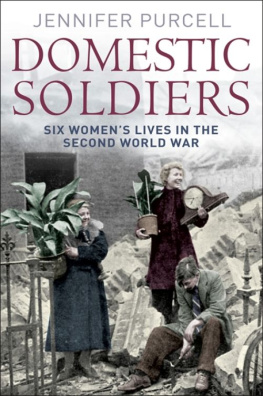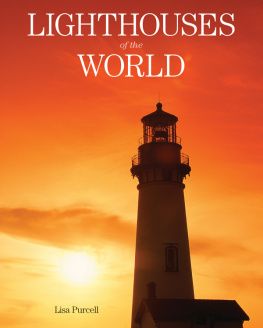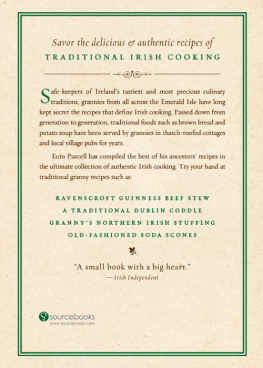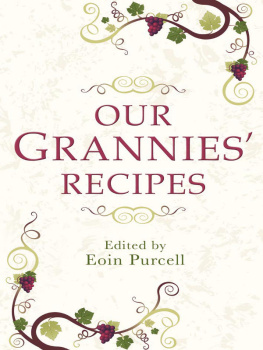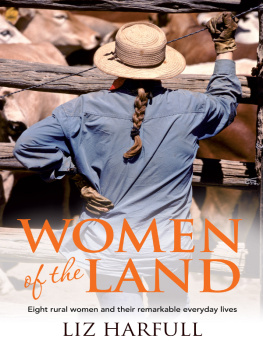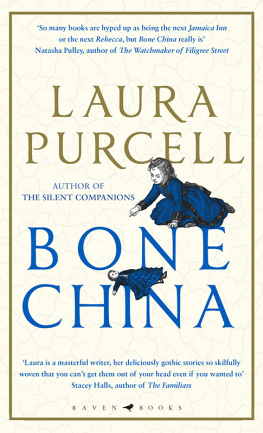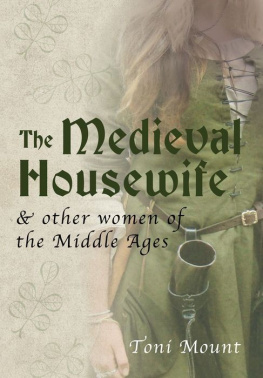A work of this nature is never accomplished alone. Throughout the process of researching and writing this book, I have been blessed with encouragement and support from dear friends and family. I have met some wonderful people who have made contributions to this project in their own ways, and along the way I have managed to make some new friends. To all those who lent moral support, offered sage advice or helped to make my work easier, I am eternally grateful.
I would like to thank the staff at the Mass-Observation Archive at the University of Sussex who were not only incredibly helpful, but who also made life at the archive enjoyable. Special thanks to Fiona Courage, Karen Watson and Jessica Scantlebury, who were not only helpful during my research at the archive, but who also made it possible for me to pursue my research from abroad. I am also grateful to the staff at Mass-Observation for acting as my cultural interpreters as they so often did. Thanks to Simon, who not only helped with my work in the archive, but who also schooled me on the joys of cricket. Thanks also to Joy Eldridge, whose knowledge of the archive was invaluable at the outset of this project. I especially thank her for sharing with me her memories of growing up listening to womens programmes on the BBC with her mother. Special thanks to Dorothy Sheridan for sharing insights about the women, which proved integral to my research. I particularly want to thank her for working out solutions that helped me continue my work abroad. I would also like to thank the trustees of the Mass-Observation Archive for making available such an extraordinary and unique resource. All direct quotes from the diarists are copyright of the Mass-Observation Archive. I wish to thank too the archivists at the BBC Written Archives Centre at Caversham Park in Reading for their assistance in this project.
To Sandra Koa-Wing, thank you for your support and encouragement throughout my time at Sussex and in the early days of writing. I will always remember your laugh and the brightness with which you filled the archive. You are, and shall forever be, greatly missed.
Without the advice, support and encouragement of Claire Langhamer and Alun Howkins, I dare say this project would not have come to fruition. I am eternally indebted to Marjorie Levine-Clark, who has been a wonderful mentor, coach and advocate over the years.
I wish also to thank my friends, old and new, who lent their support and encouragement during this process. Special thanks to Jenna Bailey, who has given generously of her time and advice in combing over numerous drafts thank you for your support and friendship. Over innumerable cups of tea and equally numerous emails, Andrea Salter and I contemplated the life of Nella Last I could never have survived archival work (and Nellas maddening handwriting) without you! Thanks to Susan Gustin, Laura Rey and Donna Castle for your unfailing encouragement over the years. I wish also to thank Susan Ouellette for her advice and friendship, and of course, Jane Viens, without whose help absolutely nothing would ever get done!
Thanks to Jessica Cuthbert-Smith for a keen critical eye and to Jo Stansall for her help in this process. Special thanks to Leo Hollis, without whom this book would never have reached the light of day. Thank you for the helpful advice and criticism along the way, and, certainly not least of all, for infinite depths of patience.
Finally, to my family, who has been a source of love, encouragement and inspiration. To my father for instilling in me a love of history and for helping to fire my historical imagination on so many childhood trips to American Revolution and Civil War battlefields. Love and thanks to Bill and Kim for their continual support. Love and thanks also to Doug for sharing his love of history with me and for always supporting me in my endeavours. We are blessed to have you in our lives. Without the unconditional love and support of my mom, I do not think I could have made it this far. Thanks for reading my work (really, every single scrap of paper Ive ever sent your way!) and for never failing to be my number one fan all these years. Finally, to Rob, for your numerous sacrifices and support, which I cant possibly begin to enumerate here, and for patiently listening to me discourse endlessly on housewives and the Second World War, as always, my love.
It was 2 a.m. on a frosty Saturday morning in December. Helen huddled over a coal-fired stove, straining her ears to discern any trace of the Luftwaffe growling in the distance. Night after night, she complained, they murdered her sleep with each wave of planes that passed over the draughty medieval residence on the Kent coast. Whether they dropped their bombs on her village or whether they passed over on their way to deliver death on another city, the anxiety was the same. Neither was the murmur of the RAF planes on their way to the Continent comforting: their engines signalled the same death and destruction for German cities that the Nazis rained upon English cities.
Tonight, she listened for Firebomb Fritz, but there was no sound. After weeks of raids, it was eerily silent: a lovely thick fog had descended upon the south-east coast of England, thwarting air operations for either side. Helen shivered in the silence the stove was wholly inadequate for the sharp chill of a December night. She cursed. The one night she volunteered for fire watching duty was the one night she could have managed some sleep. What have I done for you, England, my England? she bitterly mused.
It was the definitive question of the war: what were you doing for the war effort? Stated another way, as seen in the wartime pages of the classic guide to middle-class housewifery, Good Housekeeping, women were questioned, Is your conscience clear? It was a simple, but stinging, call to action that underlines the nature of the Peoples War. Before the first month of the war was done, the phrase had been coined in the upper echelons of government in recognition of the fact that everybody was important to the war effort. Soon afterwards, the title, and the idea that everyone had a part to play in the war, was picked up in popular venues: on the BBC, on the silver screen, in the newspapers and magazines. The Peoples War was not by its very definition, could not be an entirely military affair. It galvanized everyone woman, child and man into action to protect Britain and to fight for a new future.
If your conscience chaffed, there were ways to soothe it. The Peoples War was a war of small, ordinary, even mundane, feats compounded by the millions into incredible tides of action. Certainly there were the military campaigns, the triumphs and the defeats (and sometimes the triumphal defeats) of the battlefields, in the air and on the seas: Dunkirk, the Battle of Britain, Singapore, El Alamein, D-Day, the Battle of the Bulge, for example. And, of course, these defeats and victories were composed of numerous acts of the ordinary and the courageous, the cynical and the hopeful. It was no different for those at home.
Volunteering and paid work were some of the ways civilians might assuage the conscience of those who stayed behind, but there was more to it than that. Every moment and every action counted: turning over your flowerbeds to vegetables, using less hot water, scraping the margarine paper till all the grease was gone, saying no to a new pair of shoes shivering on a cold December morning. The war lurked behind every act on the home front. This fact of the Peoples War was invigorating and powerful for some, maddening for others.
Because every act was potentially heroic, anyone could be a hero. Because there was so much to do, there was also a wonderfully empowering flexibility about the Peoples War. Whatever one did, or wanted to do, if it was done well and if it was deemed useful to the nation in its hour of need, it was important. But if one could be a hero, one might also be a villain; and if there was so much to do, one might not be doing enough, and the guilt could be crushing. For many, this was the day-to-day reality of the war.

